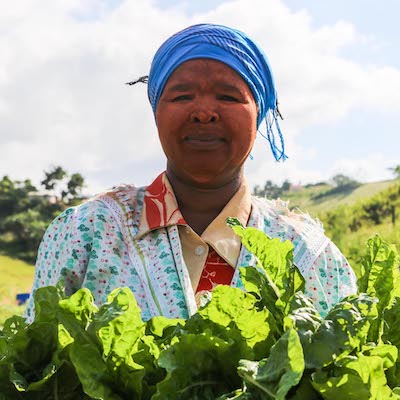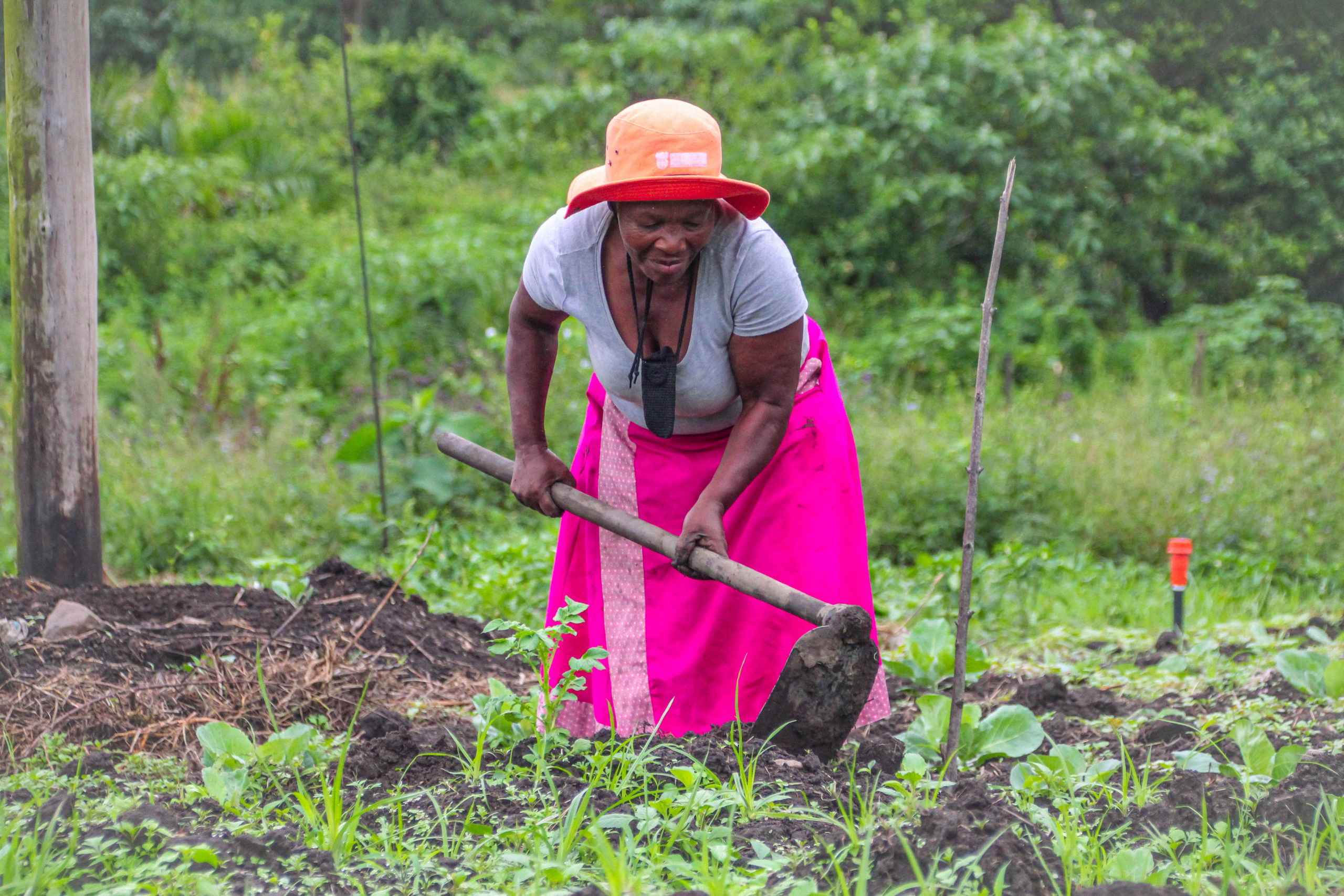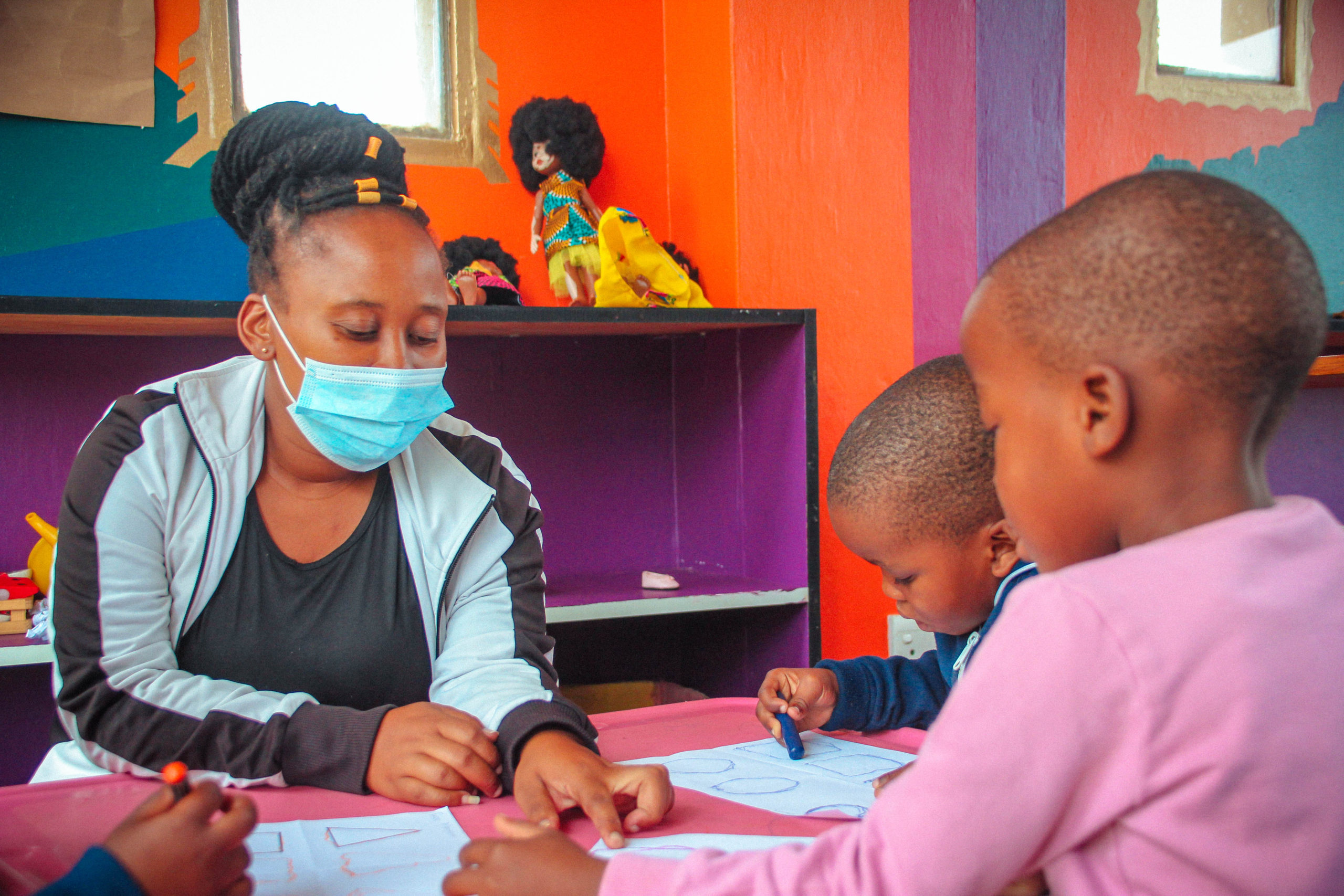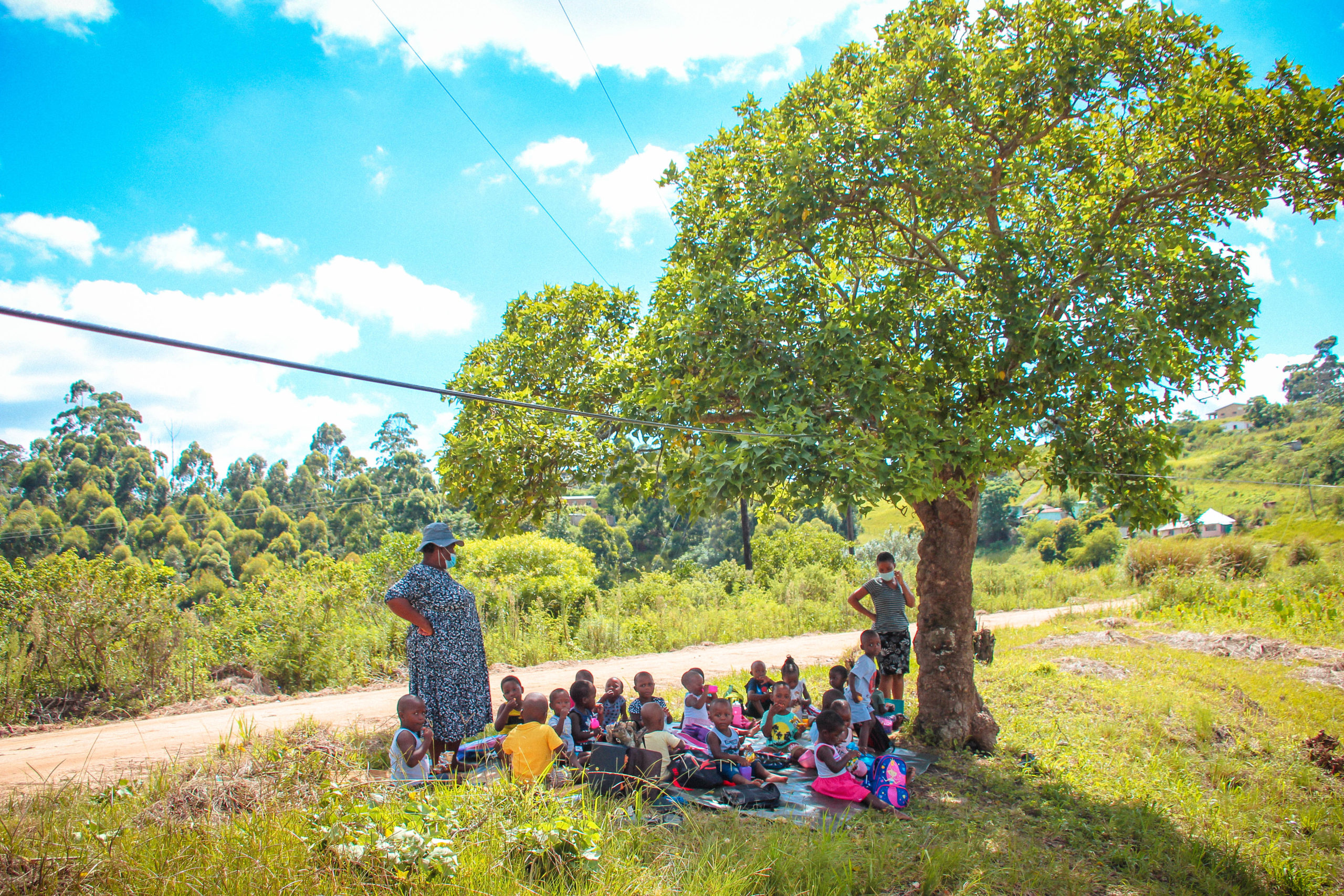Environmental sustainability is inherent to Thanda’s mission and its operation. Our community puts abundant effort toward ensuring positive futures for youth and children, and we recognise that in order to have that future, we must maintain the natural environment that they live in. You can find environmentally conscious messages throughout our Creative Learning Curricula, by which Thanda participants learn about the interconnectedness of humanity and the natural world. Our ECD children have class outside and go on nature walks throughout the Community Centre to observe the local ecosystem. In our After-school Programme, participants take part in activities centered around sustainability and, throughout the year, we measure how our participants feel about the environment. In each grade, the percentage of students who showed concern for the environment increased, especially in Grades 6 and 7, where participants showed a 35% improvement in environmental awareness.
But at Thanda, we aren’t just talking the eco-talk, we’re walking the eco-walk.
Our Community Centre is constantly bustling with Facilitators, children, farmers, and community members. The infrastructure it takes to keep such a busy operation running smoothly is tremendous. We are proud to supply these needs with environmentally friendly solutions like recycling, solar power, bio-fuel and much more!
Reduce, Reuse, Recycle! Thanda diverts waste from the community by repurposing rubbish into art. Toilet rolls, bread bags, cereal boxes, bottles, and other waste products all become art supplies for our participants and resources for our Facilitators. Anything we cannot find an artistic new life for– which is very little– we send off to be recycled. Taking in the Sun. When you walk into our Community Centre, the first thing you see is our library, topped with PV solar panels basking in the sun. These panels gather enough solar energy to power our entire operation. Our 5kW grid-feeding inverter and our high-tech battery allow daytime power loads to run with little pressure on the overall battery life and maintain the system so that even in rare periods without sun, there is sufficient stored energy to maintain all primary systems. This, combined with special architecture that utilises natural light, means that the Community Centre will never be without power or need to draw on fossil fuels.
Taking in the Sun. When you walk into our Community Centre, the first thing you see is our library, topped with PV solar panels basking in the sun. These panels gather enough solar energy to power our entire operation. Our 5kW grid-feeding inverter and our high-tech battery allow daytime power loads to run with little pressure on the overall battery life and maintain the system so that even in rare periods without sun, there is sufficient stored energy to maintain all primary systems. This, combined with special architecture that utilises natural light, means that the Community Centre will never be without power or need to draw on fossil fuels.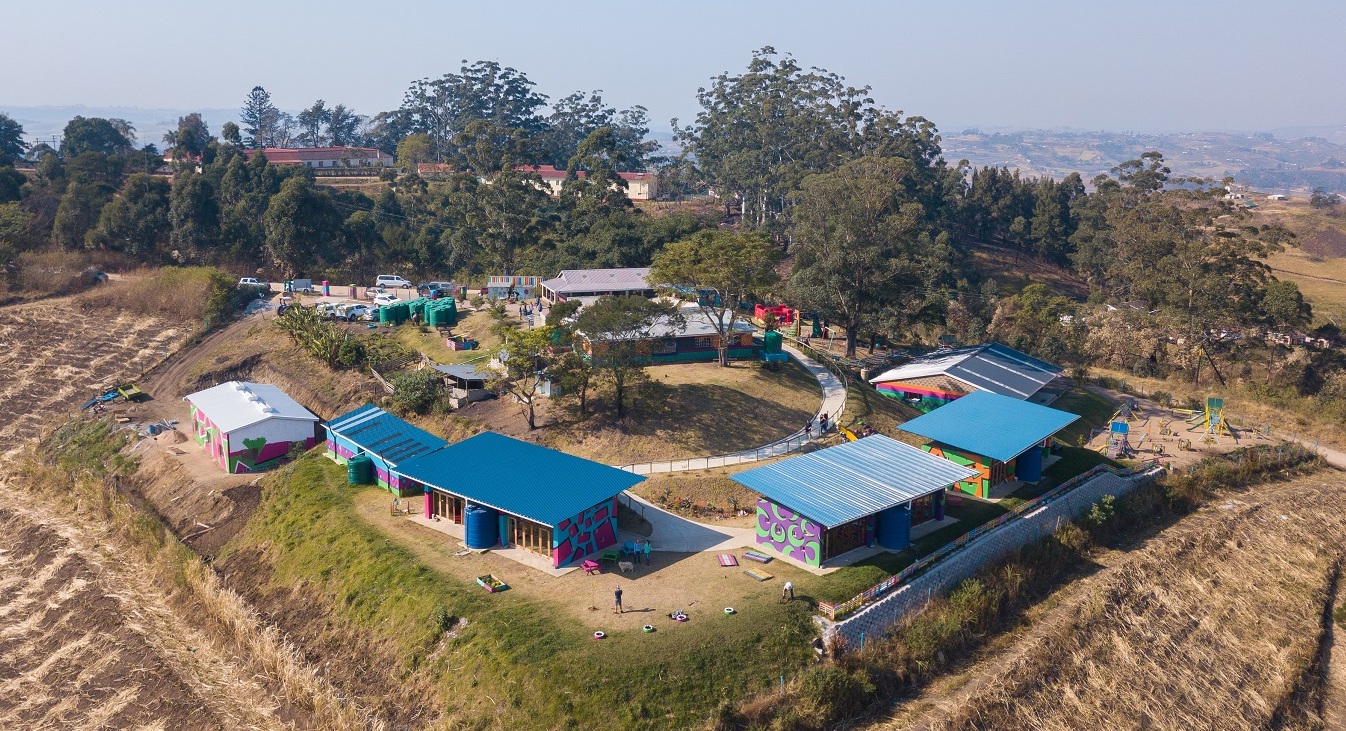
Putting Pigs to Work. We work to increase food security and promote childhood nutrition by providing healthy meals for children enrolled in our ECD, Grade R, and After-school programmes. In order to support the 871 children benefitting from these programmes, a lot of cooking goes on at our Community Centre. The food scraps produced during this process are very useful as anything not added to our composting pit in the garden is fed to our 6 pigs who repurpose the food into waste. The waste is then fed into an on-site bio-digester that refines the waste into fuel. The fuel is then used in our kitchens to make meals, starting the cycle all over again!
Enviro-Loos. With as many people as the Community Centre serves, having quality toilets is a necessity. In our washrooms, we use “Enviro-Loos”, a dry sanitation system that requires absolutely zero water. Liquid and solid waste areseparated via a custom-designed ceramic toilet bowl and areexposed to continuous air flow that, over time, dehydratessolid waste and causes liquid waste to evaporate.Simultaneously, sunlight is absorbed by the system, causingwaste to dehydrate and decompose, which reduces it to about5% of its original volume. The system is very hygienic and uses neither water or electricity! Tippy Taps. After using our Enviro-Loos, we use Tippy Taps to wash our hands. Tippy Taps are a device where aplasticcontainer with a hole in the lid is hung from a pole and connected to a stick on the ground by a wire. When you press down on the stick with your foot, the container tilts to allow water out. By this method, even our littlest participants can easily manage the volume of water being used.
Tippy Taps. After using our Enviro-Loos, we use Tippy Taps to wash our hands. Tippy Taps are a device where aplasticcontainer with a hole in the lid is hung from a pole and connected to a stick on the ground by a wire. When you press down on the stick with your foot, the container tilts to allow water out. By this method, even our littlest participants can easily manage the volume of water being used. Rain, Rain, Come Again! For our other water needs, we utilise a rain water harvesting system that creates fresh, purified water. Rain water from our roof tops is collected in 10,000L Jojo Tanks and goes through a purification system to become potable water. At the moment, we are working to put in a water spicket that leads outside of our Community Centre because, during the dry winter, many members of the community cannot access fresh water at home. They instead go to nearby streams whose quality is not guaranteed. Having the spicket would mean that we can share our clean water when and where it is needed most.
Rain, Rain, Come Again! For our other water needs, we utilise a rain water harvesting system that creates fresh, purified water. Rain water from our roof tops is collected in 10,000L Jojo Tanks and goes through a purification system to become potable water. At the moment, we are working to put in a water spicket that leads outside of our Community Centre because, during the dry winter, many members of the community cannot access fresh water at home. They instead go to nearby streams whose quality is not guaranteed. Having the spicket would mean that we can share our clean water when and where it is needed most.
Working with the Environment. Our organic farmers work in harmony with the environment to produce the best crops. Instead of chemical fertilisers and pesticides that harm water and soil quality (as well as human health), Thanda farmers use compost and planting methods that prevent pests from eating their veggies. In order to expand the variety of farming outputs, secure stable farming incomes, and maintain environmental stewardship, we are currently developing a permaculture concept that does not harm people or natural biodiversity. Pending funding, our Community Centre would take on 15ha of adjacent land where we would pursue polycrop farming and husbandry. The permaculture design includes bees; mango, litchi, banana and macadamia nut trees; pigs; cattle; barno and moringa grass; chili, sweet potato, and turmeric crops; and a medicinal garden filled with indigenous plants. The ecosystem created by these components supports organic soil health and the natural retention of water and minerals throughout the farm. If the test plot is successful, the design could be replicated across farms and households in our community, leading to a more financially secure and environmentally friendly future.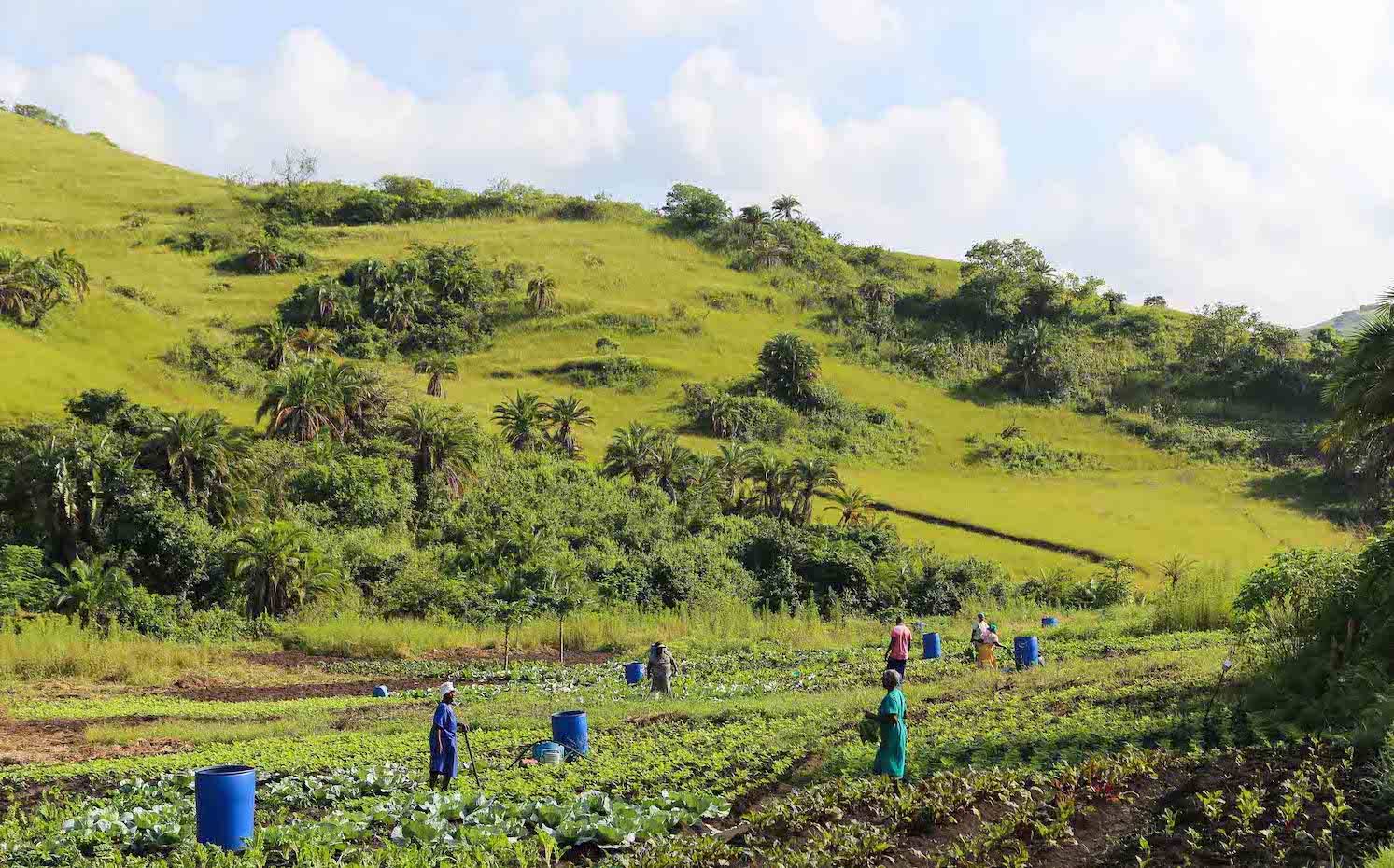
Greening our programmes is an ongoing process and we are excited to continue our part in the movement to ensure that children and youth inherit a healthy planet. Happy Earth Day!


